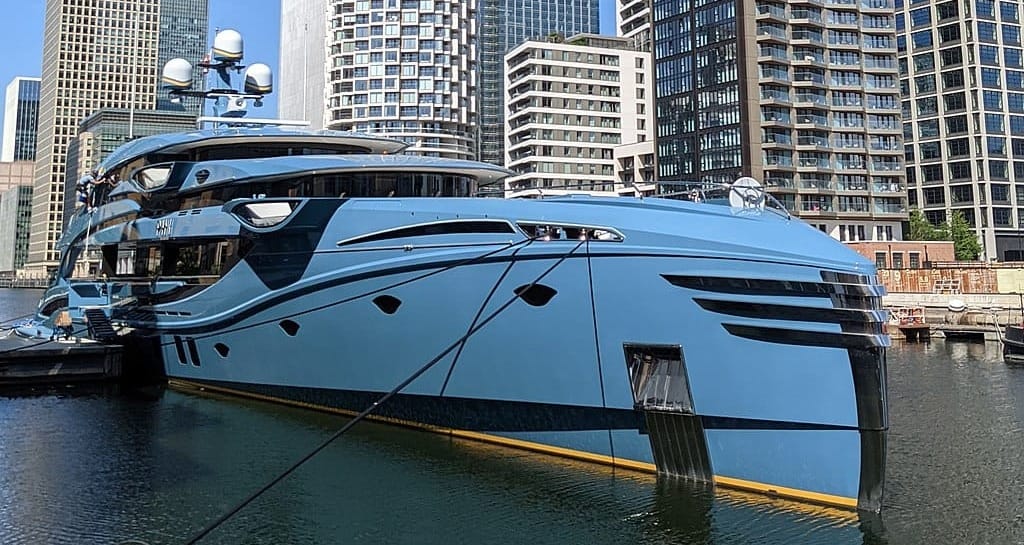Supreme Court's Ruling on Phi: A Defining Moment in Sanctions Law
UK Supreme Court upholds sanctions legality, affirming asset detainment linked to Russia despite owners not personally sanctioned.

The British Supreme Court has delivered a significant verdict that has captivated the attention of the superyacht industry, as it unanimously dismissed Dalston Projects’ appeal against the detainment of the superyacht Phi in London. This ruling not only validates the UK government’s authority to hold assets linked to Russia under the Russia (Sanctions) (EU Exit) Regulations 2019 but also ratifies the legitimacy and proportionality of such actions.
This landmark decision has profound implications, underscoring the UK's commitment to enforcing sanctions aimed at exerting pressure on Russia, particularly in the context of its ongoing conflict in Ukraine. Despite Phi's ultimate beneficial owner, Sergei Georgievich Naumenko, not being personally sanctioned, the judgment insists that assets linked to Russian interests can be lawfully detained.
Another case heard alongside this verdict was that of Eugene Shvidler, who similarly challenged his designation under UK sanctions. While Shvidler's appeal was dismissed by a majority, this unified stance sets an influential precedent on the extent of governmental sanctions initiatives.
Central to the appellants’ argument was the claim that the sanctions infringed upon their property rights under the European Convention on Human Rights. The court, however, judged this interference as proportionate given the broader strategic aim – persuading Russia through economic measures. The justices noted that by disrupting income and prestige, such steps could provoke discontent among Russia's elite, indirectly applying pressure on its regime.
The ruling elaborates on how Naumenko’s potential earnings from chartering Phi would likely fuel the Russian economy, even if the capital does not directly return to Russia. Deemed a person “connected to Russia,” Naumenko fell under the regulations’ remit, despite the lack of personal sanctions.
While the propriety of certain public statements regarding Phi's ownership were criticized, they did not affect the legal grounds for its detention. Operational concerns for the vessel, now moored and deteriorating in London, were acknowledged but deemed manageable through the Office of Financial Sanctions Implementation’s licensing system for essential maintenance.
The justices concluded that severe, open-ended sanctions are often necessary for effectiveness. Yet, the question of whether Phi's detention constitutes unlawful interference remains unaddressed, hinting at potential future legal claims.
Amidst varying judicial opinions on the scope of ministerial discretion in human rights matters, Lord Leggat cautioned against unchecked governmental power, advocating for sustained judicial oversight.
This case fortifies the judiciary's support for extensive sanctions policies, underscoring their potential to extend beyond individuals directly accused of wrongdoing. As Naumenko's legal team considers pursuing appeals at the European Court of Human Rights, the path forward for Phi and its crew grows increasingly complex, with their legal recourse within the UK now exhausted.






